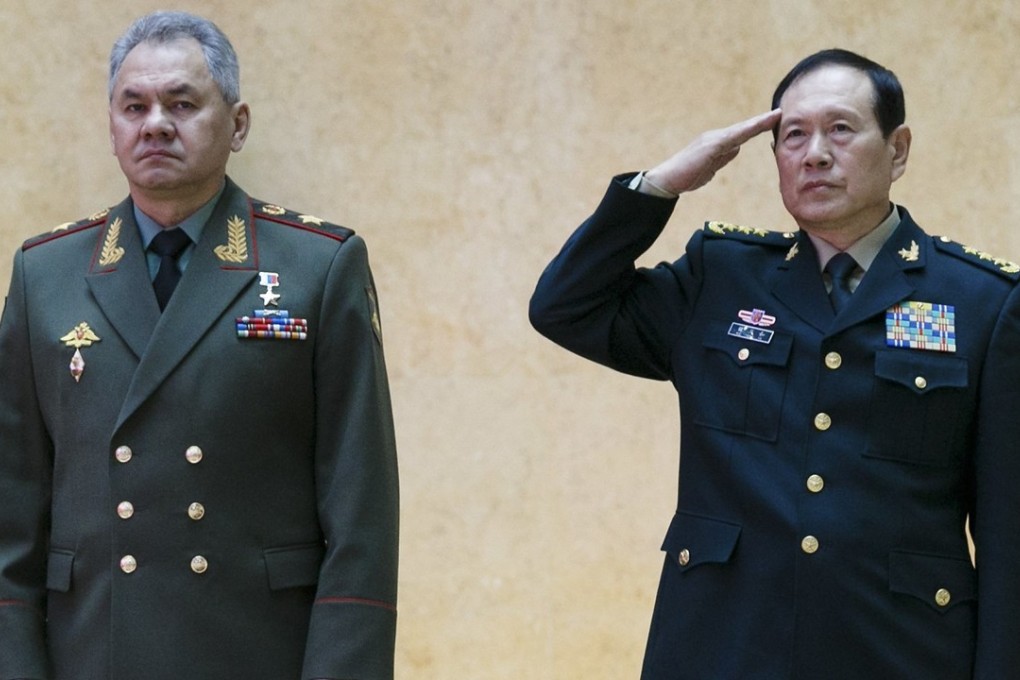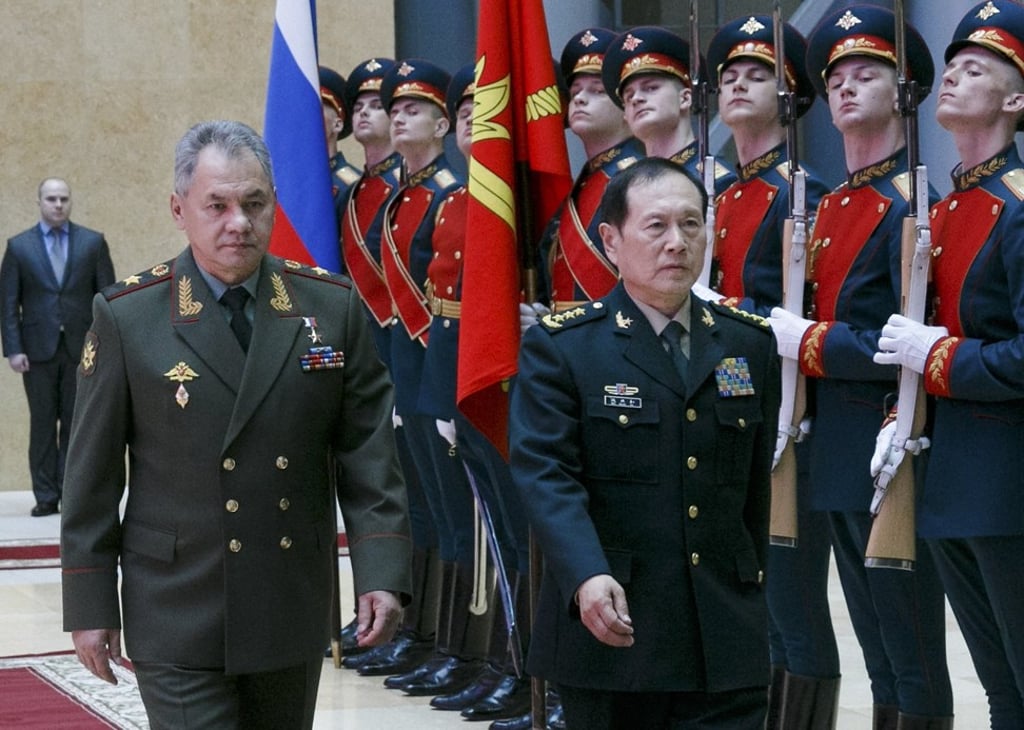US take note: Chinese, Russian militaries are closer than you think, China’s defence minister says
Wei Fenghe makes bold statement on visit to Moscow accompanied by fellow State Councillor Wang Yi, as Communist neighbours reaffirm ties

The United States should be aware of the close military ties between Beijing and Moscow, China’s defence minister said during a visit to Russia, which has been facing international isolation over the killing of a former spy in Britain.
“I am visiting Russia as the new defence minister of China to show the world the high level of development of our bilateral relations, and firm determination of our armed forces to strengthen strategic cooperation,” Wei Fenghe was quoted as saying on Tuesday by Tass, Russia’s state news agency.
In talks with his Russian counterpart, Sergei Shoigu, Wei said he wanted it made clear that his visit was a signal to “let the Americans know about the close ties between the armed forces of China and Russia”.
Wei was accompanied on his trip by China’s foreign minister and senior diplomat Wang Yi, both of whom are newly appointed State Councillors.
